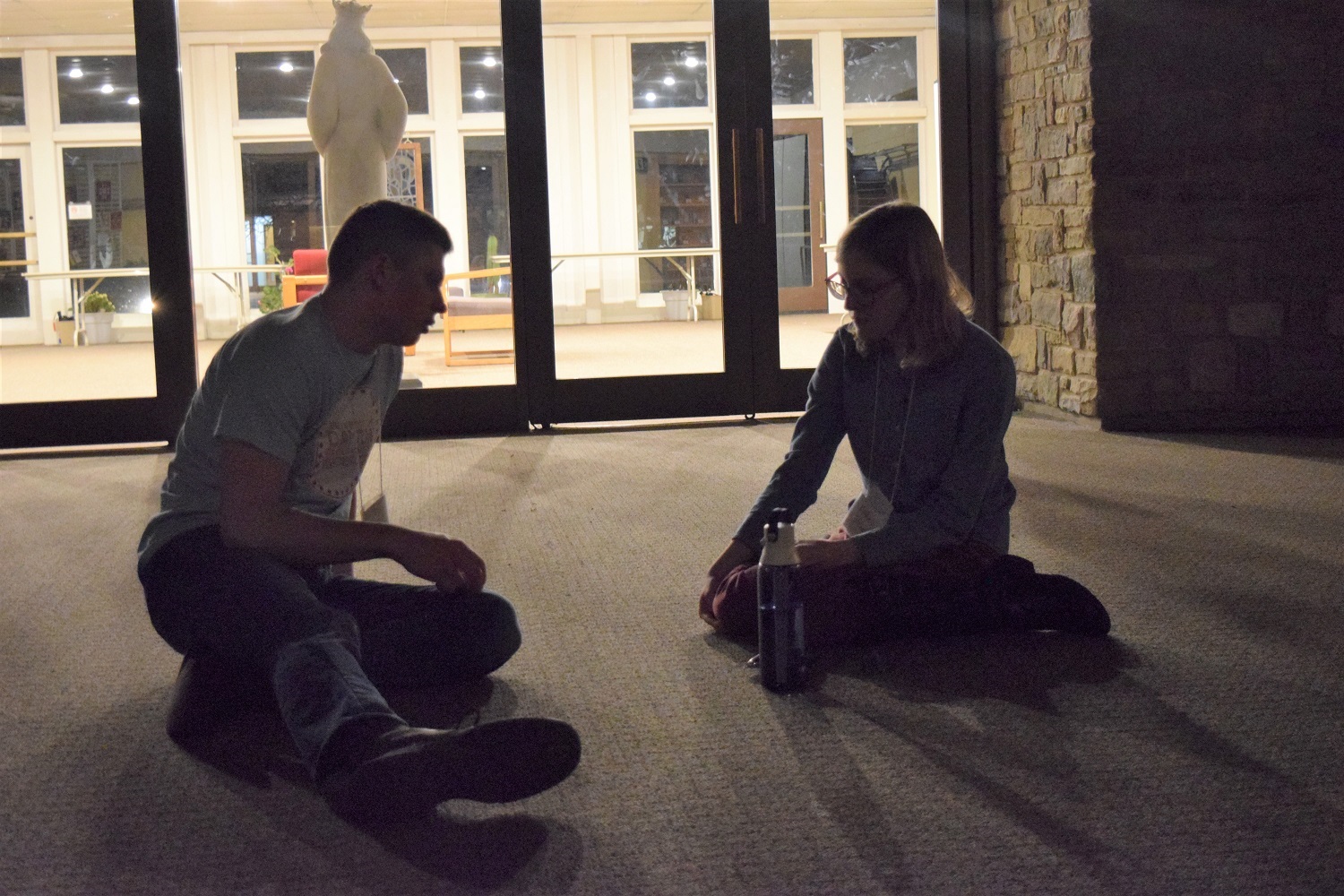Spiritual Direction

Spiritual Direction/Companionship
Spiritual Direction is one of the most important things you can do for yourself. Paying attention to God with the help of a spiritual director or companion in a private one-on-one meeting or a regular series of meetings can make an important difference in all areas of your life.
Frequently Asked Questions
1) What is Spiritual Direction about?
Spiritual direction is first and foremost about life and asking the question of how God is moving in your life. Where is God in your life as a student or faculty/staff member on campus? How can you be more aware of God’s presence in your relationships, your experiences, your prayer? How can your relationship with God influence your decisions? These are just a few questions that you may explore through spiritual direction.
2) Why would I want Spiritual Direction?
People seek spiritual direction for many different reasons. What needs the most attention in your spiritual life right now? Prayer life? Vocational discernment? Relationship or family experiences? Integrating faith into your daily life? Encountering the presence of God in grieving the loss of a loved one? Exploring faith questions? Making important decisions?
3) Is it confidential?
Spiritual direction honors the individual and her/his personal journey, and takes place in a private, one-on-one session. Since spiritual directors are either employed by or volunteering for the University, they are mandated reporters (with the exclusion of ordained clergy). Therefore if there is an imminent threat to your safety or the safety of another person, spiritual directors will contact the necessary campus resources so they are aware of and can respond to the concern appropriately. This applies to situations that include, but are not limited to sexual assault, sexual harassment, discrimination, and suicidal ideation.
4) How is spiritual direction different than counseling or therapy?
Spiritual direction is not to be exclusive of or a substitute for counseling, therapy, or other mental health opportunities. Counseling and therapy often focus on challenges in our lives with some focus on our emotional lives, relationships, behavior patterns, communication techniques, conflict resolution, etc. Spiritual direction may also engage these dynamics, but the focus of Spiritual Direction is on one’s spiritual life and one’s relationship with God. Similar to counseling and therapy, spiritual direction can involve an indefinite or longer term commitment as well as a shorter term commitment that is designed to respond to specific situations and experiences.
5) How do I get started?
Look over our list of spiritual directors/companions attached to this webpage. Read through their information and see who is a potential good fit for you. You may choose a director from the list and email them to set up an initial meeting. If they are on the list, they will not be surprised to receive your email. When you meet them, ask about their approach to spiritual direction. They will ask you questions about what you are looking for and get to know you better as well.
Some names on the list are certified spiritual directors, while others have a pastoral background in guiding others on their faith journey. Those who are certified have it included in their biography.
6) How long will I meet with my spiritual director? What does it look like?
Most often, spiritual direction sessions are an hour long. You may want to meet with a director/companion once to discuss a particular issue or you may want to continue to meet on a regular basis. The length and frequency of meetings are determined by you and your spiritual director.
